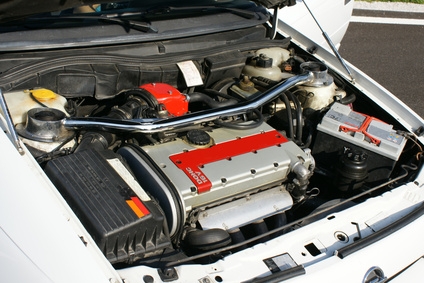
According to the Bureau of Labor and Statistics, diesel-powered engines use less fuel and tend to last longer than gas-burning engines. For these reasons, consumers, commercial truck drivers, and buses use diesel engines. Learning diesel mechanics would qualify you to work on your own diesel vehicle; it would also give you a skill set that would make you an ideal candidate for an auto-shop that services diesel engines. Enroll in a diesel mechanics program to learn the ins and outs of these engines.
Visit your local library to borrow books about diesel mechanics. Examples include "Diesel Mechanics" by Erich J. Schultz, "Troubleshooting and Repairing Diesel Engines" by Paul Dempsey, and "Small Diesel Engine: Service Manual" edited by Intertect Publishing Corporation. Consider purchasing these texts to build a reference library. Do an online search or visit your local bookstore to order and purchase these texts.
Enroll in a diesel mechanic training school and complete the diesel mechanic course track. These courses are offered by many community colleges, trade schools, and technical schools. Check the local schools in your area or use the Internet to find a school near you. One good Internet resource is "Trade-Schools.net" (see Resources). Plan on spending between six months to two years in a program.
Volunteer your time at a local auto shop that services diesel engines. While classroom training is valuable, according to the Bureau of Labor and Statistics, many technicians learn through on-the-job training. Supplement your education and your reading by volunteering at a local auto shop.
Offer your knowledge to your friends and family who have diesel vehicles and perform routine maintenance procedures on the cars. Keep your skills sharp by doing as much repair work and maintenance as you can on diesel engines.